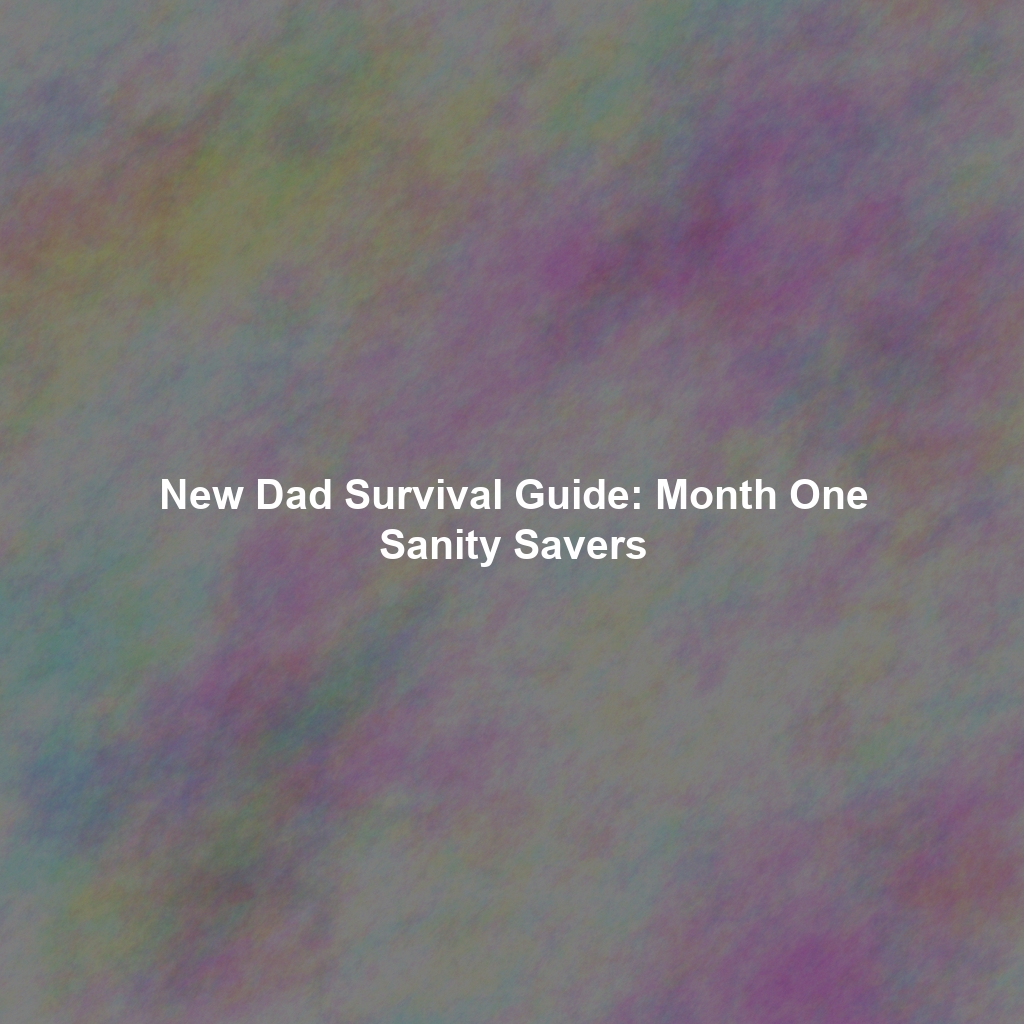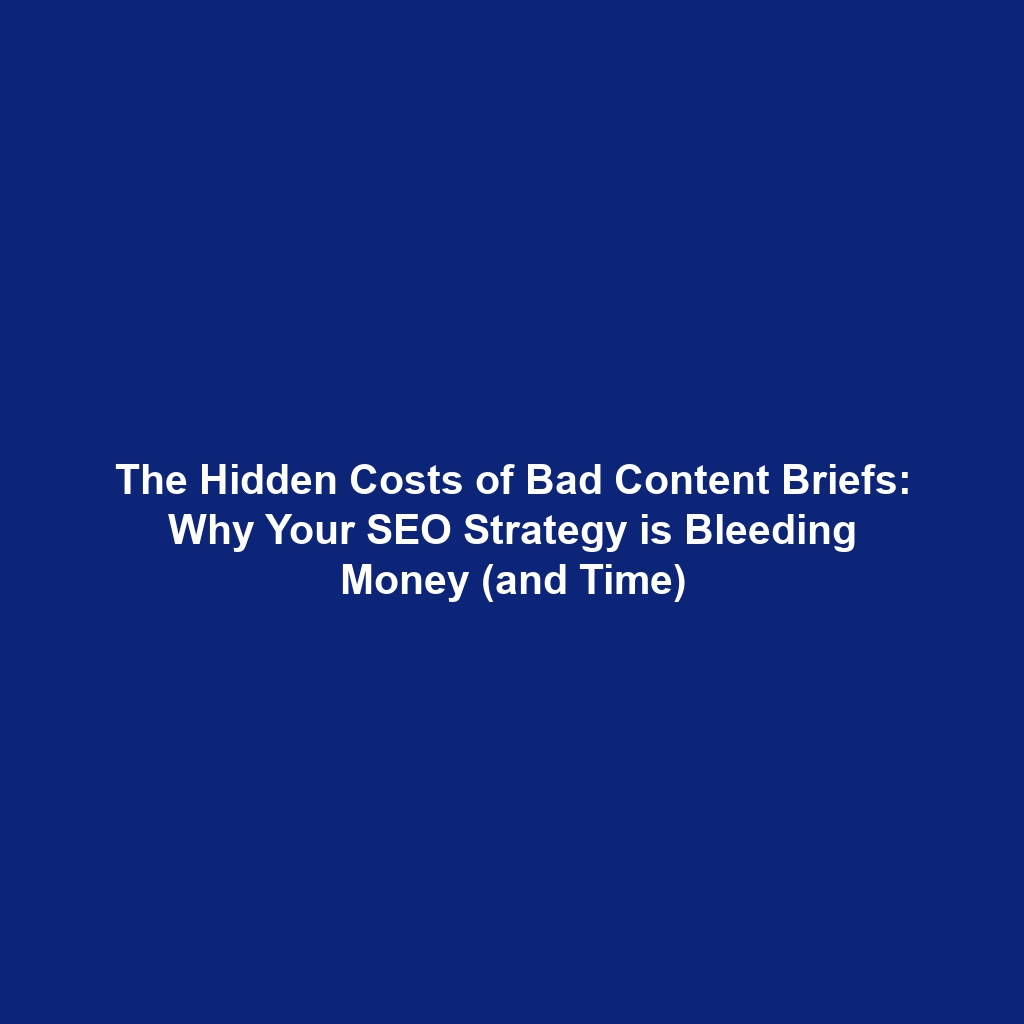Surviving the First Month: Dad-to-Dad Advice on Sleep Deprivation, Feeding Schedules, and Partner Support
Hey there, soon-to-be or brand-new dads! Congratulations on embarking on this incredible journey. The first month with a newborn is often described as a whirlwind – a beautiful, exhausting, and sometimes bewildering experience. I’m here to tell you, from one dad to another, that you *can* survive, and even thrive, during this challenging time. This isn’t just theoretical advice; it’s based on my own experience (and near-constant Googling) with our little one, Leo. Prepare for a wild ride, filled with love, sleepless nights, and more diaper changes than you ever thought possible. Let’s dive in.
The Reality Check: Prepare for Sleep Deprivation
Let’s face it: sleep deprivation is the biggest beast to conquer in the first month. You’ve heard about it, but experiencing it firsthand is a different ballgame. I vividly remember those first few nights – feeling like a zombie, stumbling around in the dark, desperately trying to remember how to assemble a bottle. The key here is proactive planning and realistic expectations.
- Understand Sleep Cycles: Newborns don’t have a regular sleep schedule right away. They sleep in short bursts, typically 2-3 hours at a time, around the clock.
- Embrace Shifts: My wife and I implemented a shift system. Initially, I took the first shift (8 pm to 2 am) so she could get a longer stretch of sleep. Then, I’d pass the baby over, and she’d handle the rest of the night.
- Optimize Your Sleep Environment: Blackout curtains, a white noise machine, and a comfortable mattress are game-changers. Seriously, invest in them.
- Nap When the Baby Naps (Seriously!): This sounds cliché, but it’s crucial. Forget about catching up on chores or emails. Your priority is rest.
Key Insight: Prioritizing sleep, even in short bursts, is essential for both your physical and mental health. Sleep deprivation can impact decision-making, mood, and overall well-being. Research suggests that chronic sleep deprivation can even mimic the effects of intoxication. CDC on Drowsy Driving
Real-World Scenario: I remember trying to “power through” one night, thinking I could handle it. By 4 am, I was so exhausted I almost put the diaper on backwards (and may have tried to throw it in the fridge). That’s when I realized I needed to prioritize rest. From then on, I religiously stuck to the shift schedule, even when I felt like I had “too much” to do.
Decoding Feeding Schedules: Breastfeeding and Formula
Feeding is another major focus during the first month. Whether you’re breastfeeding, formula feeding, or a combination of both, understanding the basics is crucial. Here’s what I learned:
Breastfeeding Support
- Learn the Cues: Fussiness, rooting (turning the head and opening the mouth), and bringing hands to the mouth are all signs that your baby is hungry.
- Support Mom: Breastfeeding is hard work! Bring her water, snacks, a comfortable pillow, and create a calm environment. Don’t underestimate the power of a back rub!
- Lactation Consultant is Your Friend: If your partner is struggling with breastfeeding, don’t hesitate to seek help from a lactation consultant. They can provide invaluable guidance and support. We almost gave up on breastfeeding, but our lactation consultant helped us overcome some early challenges. La Leche League International is a great resource.
- Understand the Time Commitment: Breastfeeding sessions can be frequent and lengthy, especially in the early days. Be prepared to adjust your schedule and offer unwavering support.
Formula Feeding
- Choose the Right Formula: There are many different types of formula available. Consult with your pediatrician to determine the best option for your baby.
- Prepare and Store Safely: Follow the instructions on the formula container carefully. Always wash your hands before preparing a bottle, and store prepared formula in the refrigerator.
- Pace Feeding: Pace feeding mimics breastfeeding and can help prevent overfeeding and gas. Hold the baby upright and allow them to control the flow of milk.
- Cleanliness is Key: Sterilize bottles and nipples regularly, especially in the first few months.
Key Insight: Feeding, whether breast or bottle, is about more than just nourishment; it’s a bonding experience. Make it a positive and supportive experience for both mom and baby. Understand that it’s okay to supplement with formula if breastfeeding isn’t working out as planned. A fed baby is a happy baby.
Practical Application: We opted for a combination of breastfeeding and formula. My wife breastfed during the day, and I took over with a bottle of formula for the late-night feedings. This allowed her to get some much-needed rest, and it gave me a chance to bond with Leo. This strategy worked great for us but may need to be adjusted to meet your needs
Teamwork Makes the Dream Work: Partner Support and Communication
The first month with a newborn can put a strain on even the strongest relationships. Open communication, empathy, and a willingness to work as a team are essential for surviving and thriving.
- Communicate Openly: Talk about your feelings, needs, and concerns. Don’t bottle things up. We made a conscious effort to check in with each other every day, even if it was just for a few minutes.
- Divide and Conquer: Discuss who will handle which tasks. Diaper changes, feeding, laundry, cleaning – everything should be divided fairly.
- Show Appreciation: A simple “thank you” can go a long way. Acknowledge your partner’s efforts and let them know you appreciate them.
- Schedule Date Nights (Even Short Ones): It’s easy to lose sight of your relationship amidst the chaos of new parenthood. Even a short walk together or a movie night at home can help you reconnect.
- Don’t Be Afraid to Ask for Help: Lean on family and friends for support. Whether it’s for childcare, meals, or just a listening ear, don’t be afraid to ask for help.
Key Insight: Postpartum depression and anxiety are common in both mothers and fathers. If you or your partner are experiencing persistent sadness, anxiety, or overwhelming feelings, seek professional help. National Institute of Mental Health on Postpartum Depression
Personal Anecdote: There were times when we were both exhausted and frustrated. We had a few arguments, but we always made a point of apologizing and talking things through. We realized that we were both on the same team, working towards the same goal. I learned quickly that my role was not just to help but to anticipate her needs. Does she need a water? Is her back sore from feeding? What small thing can I do to make her life easier?
Practical Tips for Dads
Beyond the general advice, here are some specific tips that I found helpful as a new dad:
- Master the Diaper Change: Seriously, practice! You’ll be doing a lot of them.
- Learn How to Swaddle: A properly swaddled baby sleeps better.
- Take the Night Shift: Give mom a break and handle the nighttime feedings.
- Bond with Your Baby: Skin-to-skin contact, talking, singing, and playing are all great ways to bond with your baby.
- Be Patient: It takes time to adjust to parenthood. Be patient with yourself, your partner, and your baby.
- Document the Moments: Take photos and videos. These early days fly by.
Managing Expectations: It’s Okay Not to Be Perfect
One of the most important things I learned is that it’s okay not to be perfect. You’re going to make mistakes, and that’s okay. The key is to learn from your mistakes and keep moving forward. Don’t compare yourself to other parents or feel pressured to do everything “right.” Every baby is different, and every family is different. Focus on what works best for you and your family.
Key Insight: Social media often presents an unrealistic portrayal of parenthood. Don’t fall into the trap of comparing your experience to others. Focus on creating your own unique and authentic journey.
Business Challenge Solved: In my day job as a content marketer, I often see brands trying to portray an unrealistic image of perfection. This can create a sense of inadequacy and anxiety among consumers. The same principle applies to parenting. It’s important to be authentic and transparent, acknowledging the challenges and struggles alongside the joys and triumphs. By creating honest and relatable content, brands can build trust and foster a stronger connection with their audience. This article is my effort to do just that.
Looking Ahead: The Light at the End of the Tunnel
The first month with a newborn is undoubtedly challenging, but it’s also incredibly rewarding. As you navigate the sleep deprivation, feeding schedules, and relationship adjustments, remember that this is a temporary phase. Things will get easier. Your baby will start sleeping longer, feeding more efficiently, and becoming more predictable. You and your partner will find your rhythm and develop a strong sense of teamwork. And most importantly, you’ll experience the immeasurable joy of watching your baby grow and develop.
So, hang in there, dad. You’ve got this! And remember, you’re not alone. Reach out to other dads, join online support groups, and don’t be afraid to ask for help. The first month is just the beginning of an amazing adventure. Enjoy the ride!
This article was optimized and published by Content Hurricane.


